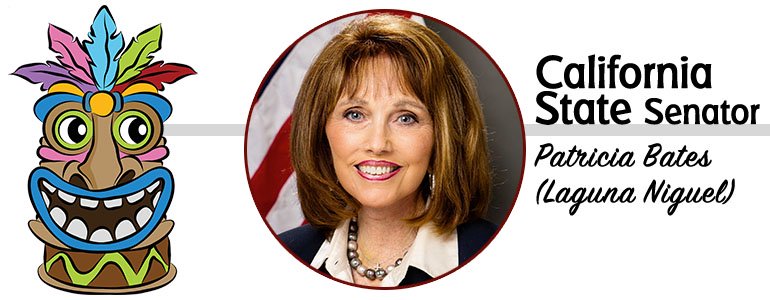Gov. Newsom vetoes SB 589 prohibiting false advertising by addiction treatment facilities


Governor Gavin Newsom has vetoed Senate Bill 589 by Senator Patricia Bates (R-Laguna Niguel) that would have prohibited an operator of addiction treatment facilities from providing any form of false advertising or marketing services. His veto message can be read here. Both the Senate and Assembly previously approved the bill unanimously.
“I am disappointed that the Governor rejected my bipartisan effort to end abuses in the rehab industry,” said Senator Bates, a former social worker. “Banning deceptive marketing would have helped protect vulnerable patients and their families from people who sought to exploit them. Despite this setback, I will continue to push for additional action that will address issues surrounding rehab facilities and sober living homes.”
Specifically, SB 589 would have prohibited an operator of a licensed residential treatment facility, a certified alcohol or other drug program, a recovery residence, or a third party, from providing any form of false advertising or marketing services, including making a false or misleading statement about the entity’s products, goods, services, or geographical locations. SB 589 would have also authorized the California Department of Health Care Services to investigate allegations of misconduct and impose sanctions.
The goal of SB 589 was to protect individuals with addiction and ensure that they are receiving the treatment that they are promised. Ultimately, the measure sought to protect those who are at their most vulnerable and seeking treatment. Marketers who knowingly and willfully make materially false statements, whether in advertising or by direct communication, with current or potential patients, should be held accountable.
Sen. Bates authored SB 589 due in part to a comprehensive investigation by the Southern California News Group (SCNG) that found that California’s hands-off approach to regulating the industry makes it easy for dishonest operators to take advantage of vulnerable individuals. According to the SCNG, they “found that destitute and homeless addicts can be worth hundreds of thousands of dollars to unscrupulous rehab centers, where those addicts often are bought, sold and exploited for their insurance payments.”
The quality of care in these facilities is not consistent and does not always adhere to a specific set of standards. In the case of Brandon Nelson, his parents were assured that he would receive therapy sessions, a case manager, a house manager, and more. This is the type of care that he needed, so his family signed him up.
Unfortunately, that is not what he received according to the SCNG: “Nelson didn’t have a team of professionals overseeing his transition — he apparently didn’t even get his medications on time, according to his parents and police reports. What they got were sales pitches, not health-care advice, the Nelsons concluded.”
Over the past year, the Legislature has recognized that consumers with substance use disorders have disabling conditions and that these consumers and their families are vulnerable. However, there are no provisions in the California Health and Safety Code to control unethical marketing practices that prey on distressed families or individuals in crisis seeking treatment. As a result, patients and their families can be misled, misdirected, and misdiagnosed by unqualified individuals.
The article above was released by State Senator Pat Bates (R-SD36). For more information, visit our web page about Orange County Elected Officials.
 Pathways Drug Rehabilitation Luxury Addiction Treatment & Detox Center
Pathways Drug Rehabilitation Luxury Addiction Treatment & Detox Center


